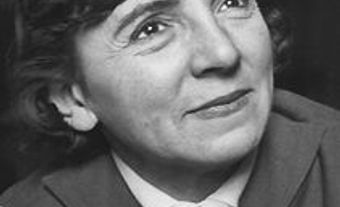Chan, Ka Nin
Ka Nin (Francis) Chan. Composer, teacher, b Hong Kong 3 Dec 1949, naturalized Canadian 1971; BA SC (University of British Columbia) 1974, B MUS (University of British Columbia) 1976, M MUS (Indiana) 1978, D MUS (Indiana) 1983. He studied composition with Jean Coulthard and Elliot Weisgarber at the University of British Columbia, then with Bernhard Heiden, Frederick Fox, and John Eaton at Indiana University. He attended the Internationale Ferienkurse für Neue Musik in Darmstadt in 1982. Chan began to teach composition at the Faculty of Music, University of Toronto, in 1982.
Awards
He was the recipient of several prizes, including an award in the first PRO Canada Young Composers' Competition in 1979 (Foung, for symphonic wind ensemble), another from the International Composers' Competition in Budapest in 1982 (String Quartet No. 2, commissioned by the Vancouver New Music Society for the Purcell String Quartet), a first prize in the International Horn Society Composition Contest in 1986 (The Everlasting Voices, in the 1981 revised version for horn and tape), two prizes in the Aliénor Harpsichord Composition Awards in Washington, DC (Phantasmagoria, 1986), a 'Mention d'encouragement' in the Prix Voya Toncitch in Paris in 1987 (Majestic Flair, for piano solo), a first prize in the 1988 James Madison University Flute Choir Composition Competition in Harrisonburg, Virginia (Ecstasy for Flute), the Jean A. Chalmers Award for Musical Composition (I Think That I Shall Never See), two Juno Awards in 1993 and 2001 for best classical composition (Among Friends and Par-ci, par-là), the U.S.-based Barlow International Competition (Among Friends), and the Dora Mavor Moore Award for Outstanding New Musical (his 2001 opera. Iron Road, premiered that year by Toronto's Tapestry Music Theatre). His works have been selected on three occasions by Canadian juries for the ISCM World Music Days (1981, 1985, 1989).
Commissions and Performances
Chan received commissions from a variety of sources, including the Vancouver Bach Choir (To God of All Nations, 1976), Orchestra London Canada (Revelation, 1984), the Esprit Orchestra (Ecstasy, 1987, also recorded, CBC SMCD-5101), the SMCQ (Nuage précieux, 1987), the CBC Vancouver Orchestra (The Land Beautiful, 1988), Vancouver New Music (Cosmopolitan Suite, 1988), the Banff International String Quartet Competition (String Quartet No. 3, 1998), the Laidlaw Foundation (Piao, 2003, for flutist Leslie Newman), the CBC for the TS 'Evening Overtures' chamber music series (The Disquiet, 1990), the Manitoba Chamber Orchestra (Treasured Pasture Leisure Pleasure, 1990), and the Edmonton Symphony Orchestra (Memento Mori, 1998; also performed in 2003 by the Hong Kong Philharmonic Orchestra, during the Chinese Composers Festival). In addition, his works were performed in Canada by the NACO, the Toronto Symphony Orchestra, the Saskatoon Symphony Orchestra, the Victoria Symphony Orchestra and the Calgary and Hamilton, philharmonic orchestras and they were also played throughout the USA, in Europe, and the Far East. In 1987, he gave the premiere of his piano solo piece Vast, as part of the Shanghai International Music Competition.
His Chinese Heritage
Chan composed a substantial number of works in all media, many showing the influence of his Chinese heritage. He played an active role within the Chinese communities in both Vancouver and Toronto, composing works for the Toronto Chinese Chamber Orchestra, the Toronto-based ethnic music ensemble Ars Omnia, and for the Miss Vancouver Chinatown Pageant (Pageant Beauty, 1988). Roger Knox wrote that Foung 'evokes the connotations of its title (a Chinese word for "wind") in its fluctuating tempos, while presenting contrasts: equal-tempered and microtonal pitch, metric and non-metric notation, modal melodies and dissonant clusters.'
Assessment
Chan's music, which won much critical acclaim, is often light and airy in texture and exotic in instrumental colour. Following a 1986 performance in Hong Kong, his Tai Chi was greeted by Anne Boyd, in the South China Morning Post, as 'always lively, imaginative and entertaining.' Andrew Porter of The New Yorker referred to Yeh-Pan Yüeh (for voice and tape) as 'the concert's most alluring piece' following a New York performance by the Indiana University New Music Ensemble in 1981. And Robert Everett-Green, writing in the Globe and Mail 29 Feb 1988, called The Everlasting Voices (in the 1979 original version for soprano, percussion, and tape) 'a shrewdly-made work, especially in the way in which Chan, who also conducted, exploited the timbral overlaps possible between voice, synthesizer and bowed percussion. Effects like his electronic angel chorus were far removed from gimmickry, so carefully were they integrated with the non-electronic elements.'
Publications and Recordings
The Everlasting Voices was subsequently recorded by the Toronto Percussion Ensemble with soprano Rosemarie Landry (1988, Centrediscs CMC CD-3288). The Ottawa Winds have recorded Chan's Four Seasons Suite (1987, CBC SM-2-5084, CD). Several of Chan's works have been published, including String Quartet No. 2 of 1981 (Editio Musica Budapest 1982), Prairie for trombone and tape, composed in 1977 (Needham Publishing 1987), Phantasmagoria for harpsichord (Hinshaw Music 1988), Wild Nights, Wild Nights for soprano, soprano saxophone, and cello, composed in 1979 (Needham 1990), and The Everlasting Voices in the version for horn and tape (Needham 1990). Recent recordings include those of Among Friends (Amici, Summit), and the masks evoke (The Gryphon Trio, Analekta), and I Think That I Shall Never See (Amici, Summit).
Chan was a member of the CLComp and an associate of the Canadian Music Centre.

 Share on Facebook
Share on Facebook Share on X
Share on X Share by Email
Share by Email Share on Google Classroom
Share on Google Classroom

